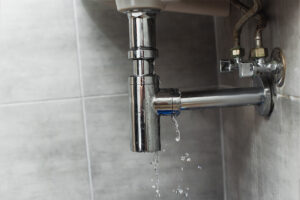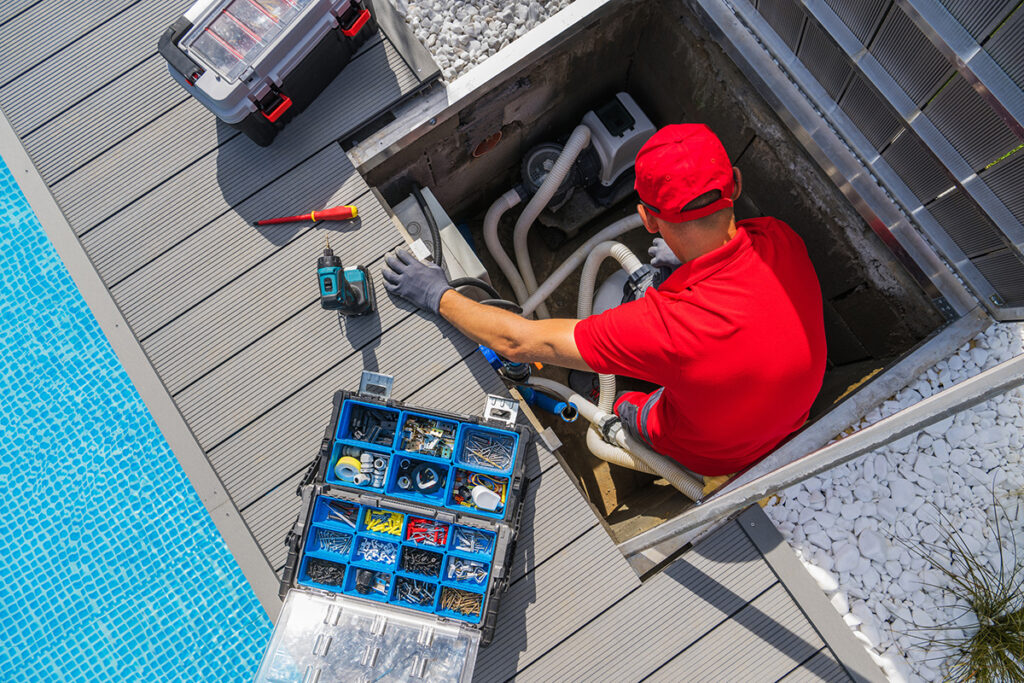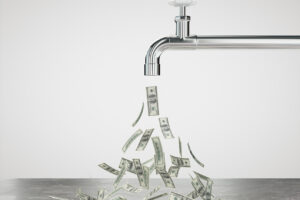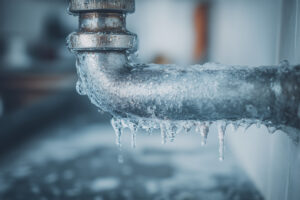Maintaining your home’s plumbing system during the summer is a critical task that many Longview homeowners tend to overlook. As temperatures rise, plumbing issues become more pronounced due to increased water usage, prolonged heat exposure, and environmental factors. Neglecting seasonal maintenance may lead to unexpected leaks, higher utility bills, and severe water damage that can compromise your home’s safety and comfort. This guide will walk you through common summer plumbing issues, offer DIY repair tips, and explain preventive measures to protect your home. We will also highlight the importance of professional services and how to prepare outdoor plumbing systems for summer storms. Let’s explore how to keep your plumbing system in prime condition during the summer.
What Are the Most Common Summer Plumbing Issues in Longview?
Longview homeowners face several plumbing challenges during summer due to increased water demand and heat. Common issues include drainage problems, leaky faucets, malfunctioning water heaters, sewer line disturbances, and outdoor plumbing damage.
Which Drain Problems Should Longview Homeowners Watch For?
During summer, increased water usage and debris can clog sinks, shower drains, and gutter drains. Sediments and grease build up quickly, resulting in slow drains, gurgling noises, and unpleasant odors. Regular cleaning with enzyme-based drain cleaners, occasional plunging, or using a mechanical drain snake can help prevent minor clogs from becoming serious issues.
How Do Leaky Faucets and Pipes Affect Summer Water Bills?
Even small drips can waste hundreds of gallons of water monthly, driving up water bills and contributing to water damage and mold growth. Regular inspection of faucets, joints, and accessible pipes for dampness or corrosion, and prompt replacement of worn washers or seals, can reduce wasted water and prevent further complications.
What Water Heater Issues Increase During Summer Months?
In summer, higher demand for hot water stresses water heaters. Common issues include sediment build-up, a faulty thermostat, and malfunctioning pressure relief valves. Flushing your water heater annually and inspecting the heating element and thermostat help maintain efficient performance and extend the unit’s lifespan.
How Can Sewer Line Problems Impact Your Home in Summer?
Sewer lines can become stressed during summer storms and high temperatures. Tree roots, debris, and grease can cause clogs, leading to backups that emit unpleasant odors and pose health hazards. Slow drains, gurgling sounds, or sewage odors indicate potential problems. Contacting a professional plumber for a sewer camera inspection is recommended if a blockage is suspected.
What Outdoor Plumbing Issues Are Common in Longview Summers?
Outdoor plumbing is vulnerable to summer conditions. High temperatures may soften plastic pipes, causing cracks or leaks, while tree roots may block outdoor pipes. Frequent use of hose bibbs and outdoor faucets, along with UV damage, necessitates regular inspections and timely repairs to prevent water wastage and landscape damage.
How Can Homeowners Perform DIY Plumbing Repairs This Summer?
DIY plumbing repairs can save money and prevent small issues from escalating. Many repairs require basic tools and materials already available at home. However, understanding each task is essential, and professional help should be sought when needed.
What Are Safe and Effective Ways to Unclog Drains at Home?
To unclog drains, first determine the clog’s location. Use a plunger to create a vacuum effect for minor blockages. For stubborn clogs, opt for a chemical-free enzyme cleaner or a drain snake. Boiling water can also help clear minor obstructions and grease buildup. Always use gloves and eye protection when handling cleaning agents, and install strainers on sinks and showers to reduce future clogs.
How Do You Fix a Leaky Faucet or Pipe Yourself?
For a leaky faucet or pipe, begin by shutting off the water supply. Identify whether the leak is due to a worn washer, gasket, or corroded part. Often, replacing the faulty component or tightening loose connections is enough. For pipes, a durable epoxy putty can temporarily seal the leak until permanent repairs are made. Regular inspection and prompt repair help reduce water bills and prevent further damage.
How to Inspect and Replace Washing Machine Hoses Before Damage Occurs?
Washing machine hoses face high pressure and movement. Inspect hoses every few months for fraying, bulges, or leaks. Replacing older hoses with stainless steel braided hoses increases durability and safety. Always disconnect and drain the machine before replacing hoses, and follow the manufacturer’s guidelines for proper installation.
How Can You Test and Maintain Your Sump Pump for Summer Storms?
A working sump pump is essential, especially during heavy summer storms. Visually inspect the pump and its basin for debris. Test the pump by adding water to ensure it activates at the correct level and pumps water efficiently. Clean the float and inlet screen regularly, and replace the pump if it has been in service for several years. This maintenance reduces the risk of basement flooding and mold growth.
What Steps Can Prevent Plumbing Leaks and Damage During Summer?
Preventing plumbing leaks requires regular inspections and prompt repairs. By monitoring both indoor and outdoor systems, you can detect leaks early and avoid costly damage.
How to Inspect Indoor Plumbing for Early Leak Signs?
Regular indoor inspections should include checking under sinks, near water heaters, and around appliances like dishwashers and washing machines. Look for moisture, damp spots on walls and ceilings, and signs of corrosion. Using a moisture meter can help detect hidden leaks. An unexplained rise in your water bill may also indicate a leak, prompting timely repairs.
What Outdoor Plumbing Checks Should You Perform Regularly?
Outdoor inspections should cover exterior faucets, hose bibbs, and sprinkler systems. Check for visible cracks, discoloration in pipes, and loose hose connections. Inspect the foundation and exterior walls for pooling water or damage that may indicate a leak. Regular checks, especially after storms, help catch issues before they worsen.
How Does Managing Water Pressure Help Prevent Leaks?
High water pressure accelerates wear on plumbing fixtures. Installing a pressure regulator to maintain pressure between 40 and 60 psi reduces stress on valves, faucets, and water heaters. Regular monitoring with an inexpensive gauge helps prevent leaks, conserves water, and lowers utility bills.
Why Is Pipe Insulation Important in Summer Heat?
Pipe insulation helps maintain water temperature by preventing pipes from absorbing extra heat, reducing energy usage for hot water production. Insulation also minimizes condensation on cold water pipes, lowering the risk of water damage and mold growth. Proper insulation stabilizes temperatures and increases system efficiency.
What Should a Comprehensive Summer Plumbing Maintenance Checklist Include?
A comprehensive maintenance checklist covers both indoor and outdoor systems, addressing potential failures before they occur. Regular reviews of your plumbing system help catch small problems before they become costly repairs.
Which Indoor Plumbing Tasks Are Essential for Summer?
Indoor tasks include flushing water heaters, checking faucets for leaks, and inspecting visible pipes in basements and under sinks. Cleaning aerators and screens keeps water flow steady and prevents sediment buildup. Additionally, check toilets for leaks and ensure the flapper seals properly. Monthly inspections in these areas can significantly reduce the risk of water damage.
What Outdoor Plumbing Maintenance Should Longview Homeowners Prioritize?
Outdoor maintenance should focus on hose bibbs, sprinkler systems, and exterior pipes. Look for rust, corrosion, or damage caused by tree roots or weather. Clean and repair gutters to ensure proper drainage, and inspect irrigation lines for efficiency. Timely outdoor repairs prevent water wastage and safeguard your property and landscape.
How Often Should You Service Your Water Heater in Summer?
Water heaters should be serviced at least once a year, preferably before summer when demand increases. This includes flushing the tank to remove sediment, checking the thermostat, and inspecting the pressure relief valve. Regular service ensures a steady supply of hot water and extends the unit’s lifespan.
When Is It Time to Call a Professional Plumber?
Call a professional when DIY repairs do not resolve persistent leaks, when clogs are extensive, or when issues involve the main water supply or sewer lines. Complex problems like underground pipe damage or severe water heater malfunctions require specialized tools and expertise for a lasting solution.
Why Choose Pither for Summer Plumbing Maintenance in Longview?
Professional maintenance offers peace of mind by ensuring your plumbing system operates at peak efficiency. Expert leak detection, thorough inspections, and rapid emergency responses by professionals can prevent small issues from escalating into major problems. They offer tailored maintenance packages that address local challenges such as high summer temperatures and tree root damage.
What Are the Benefits of Hiring Longview Plumbing Solutions for Summer Maintenance?
Longview Plumbing Solutions bring expertise, reliability, and cost efficiency. Their experienced technicians provide precise leak detection and thorough inspections based on local conditions. This proactive approach minimizes water damage risks and excessive water bills while delivering high-standard repairs.
How Does Professional Leak Detection Save Money and Water?
Using sophisticated tools like thermal imaging, acoustic sensors, and video inspections, professionals detect even the smallest leaks. Targeted repairs prevent unnecessary water waste and reduce repair costs. Early leak detection also minimizes mold growth and structural damage, making it a smart long-term investment.
What Services Are Included in a Summer Plumbing Maintenance Package?
A typical maintenance package includes a detailed inspection of indoor and outdoor systems, cleaning and flushing water heaters, leak repairs, sump pump tests, and pressure testing of water lines. Many packages also cover preventive care for irrigation systems and replacement of aging components, often with seasonal discounts or emergency response plans.
How to Select a Reliable Plumber in Longview for Summer Needs?
When selecting a plumber, verify that they have proper licensing and insurance. Look for customer reviews that highlight reliability, professionalism, and effective maintenance plans. Referrals from neighbors or local community boards can also help in choosing a service provider with a strong track record in handling Longview-specific plumbing challenges.
How Can You Prepare Your Outdoor Plumbing and Irrigation Systems for Summer?
Outdoor systems must be prepped for harsh summer conditions. Regular maintenance of garden hoses, sprinkler systems, and irrigation lines ensures efficient water delivery even during heavy rains and extreme heat. A proactive approach helps prevent damage, conserves water, and keeps outdoor spaces healthy.
What Are Common Sprinkler System Problems and How to Fix Them?
Common issues include clogged nozzles, broken sprinkler heads, and uneven water distribution due to sediment buildup or debris. Inspect each head, clean blockages with a soft brush or compressed air, and adjust settings to achieve even coverage. Checking underground valves for leaks also helps maintain an efficient sprinkler system.
How to Inspect and Repair Hose Bibbs and Outdoor Faucets?
Examine hose bibbs and outdoor faucets regularly for signs of rust, corrosion, or leaks. Tighten loose connections and replace washers when needed. To repair a faulty faucet, shut off the water supply, disassemble the unit, and replace worn parts with manufacturer-approved components. Routine cleaning and lubrication extend the life of these fixtures.
What Should You Know About Irrigation Line Damage and Repairs?
Irrigation lines may crack, split, or lose pressure due to sun exposure and environmental debris. Look for areas with reduced water flow or visible wear. Minor damage may be fixed using patch kits or replacement segments; extensive damage may require professional repair. Insulating vulnerable sections and properly securing lines also help prevent future issues.
What Are the Signs of Sewer Line and Basement Flooding Issues in Summer?
Heavy summer storms can overwhelm sewer lines and lead to basement flooding. Early recognition of warning signs — such as unusual odors, slow drains, and moisture buildup in basements — is crucial to preventing extensive damage. Quick remedial measures can save homeowners both money and stress.
How Do Heavy Summer Storms Affect Sewer Lines in Longview?
Intense storms can cause sediment, grease, and debris to block sewer lines, sometimes accompanied by soil erosion around underground pipes. These conditions may result in sewer gas leaks and unpleasant odors. Regular inspections and timely maintenance are essential during storm season.
What Are Warning Signs of Sewer Line Backups and Overflows?
Warning signs include slow drainage across multiple fixtures, gurgling sounds from buried pipes, foul odors around the home’s exterior, and persistent wet spots near the foundation. These signals suggest the sewer system is under stress and may soon overflow if not promptly addressed.
How Can Tree Roots Damage Underground Pipes During Summer?
In summer, accelerated tree growth can lead to roots infiltrating underground pipes in search of moisture and nutrients. This intrusion causes cracks, blockages, and pipe damage that reduce water flow and increase sewer backup risk. Regular professional inspections can detect early root intrusion and provide solutions like root cutting or pipe lining.
Plumbing Issue | Common Causes | Prevention Method | Cost Impact |
Drain Clogs | Grease, sediment, debris | Regular cleaning with enzyme cleaners | Low to moderate |
Leaky Faucets and Pipes | Worn washers, loose connections | Timely replacement and repairs | Low |
Water Heater Inefficiency | Sediment buildup, faulty thermostat | Annual flushing and maintenance | Moderate |
Sewer Line Blockages | Tree roots, grease, foreign objects | Professional inspections, cleaning | High |
Outdoor Faucet Damage | UV exposure, temperature changes | Regular checks, insulation | Low |
Before engaging in any DIY repairs, use the checklist below to prioritize tasks based on severity and cost:
Maintenance Task | Frequency | Tools Required | Estimated Time | Benefit |
Indoor leak inspection | Monthly | Moisture meter, flashlight | 30 minutes | Prevents water damage |
Water heater servicing | Annually | Basic tools, flush kit | 1-2 hours | Increases efficiency, lifespan |
Outdoor faucet check | Monthly | Wrench, replacement washers | 20 minutes | Minimizes outdoor leaks |
Sewer line camera inspection | Annually (or as needed) | Sewer camera (professional) | 2-3 hours | Early detection of blockages |
Irrigation system maintenance | Seasonally | Pressure gauge, hose repair kit | 1 hour | Ensures efficient water use |
This checklist provides a roadmap for maintaining your plumbing system so you can avoid unexpected issues and costly repairs this summer.





